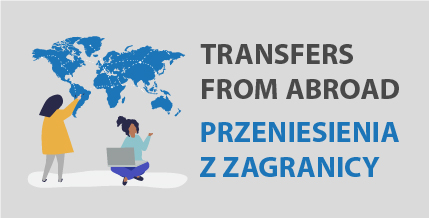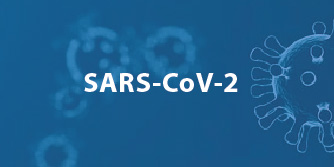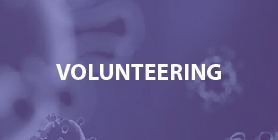Guidebook for newly-admitted students
Dear newly-admitted students, welcome to Wroclaw Medical University. Below you can find a guidebook containing infomation about some important dates, persons, terms and rules applicable at WMU.
Information provided to you during Orientation Days will dispel most of your doubts. Participation in the Orientation Days is obligatory. Find the date of the meeting scheduled for your major:
English Division (medicine and dentistry): 29 and 30 September 2021.Due to the pandemic situation, the Orientation days will be divided into three groups, you will receive information by e-mail to which group you have been assigned. The Orientation days will be held in Anatomy Lecture Hall, Chałubińskiego 6a
Getting ready to begin the studies
Student Identity Card
The fee for the student identity card is PLN 22. It should be paid to an individually generated bank account, the number of which can be found in the "Agreement on the conditions of payment for educational services and other payments related to higher education". The Agreement was given to the students of medicine during the recruitment process. The proof of payment should contain: the purpose of payment (payment for student ID card), first name an surname of the student and his/her major. The ID card will be issued only if the proof of payment has been delivered to the Dean's Office relevant to the major.
OHS Test
At the beginning of the studies the students should become acquainted with the Occupational Health and Safety (OHS) and fire safety regulations.
Purchasing handbooks and other educational materials
It is not advisable to buy new handbooks for all courses. It is advisable to wait until the first classes when you will find out which handbooks are recommended by the teachers. The handbooks can be borrowed from the WMU Library or bought from senior students, for example during the sale organised by the students at the beginning of the academic year. The senior students can also share their notes or other materials from classes with you. At the library, students can also use the available anatomical models of the skull.
Purchasing clothing and stethoscopes
Students should withhold the purchase until they are advised on the type of clothing required for each major by the year tutor during the welcome meeting . One common item of clothing for all students is the coat for classes conducted in dissection rooms. Only the medical students of the 3rd year and above will need stethoscopes, so is not advised to spend money on them right at the beginning.
Library
In order to sign up at the Library you have to collect your ID card and then register on the website of the Main Library. The Head Office of the library is the Medical Scientific Information Center at ul. Marcinkowskiego 2-6 at the campus of the Clinic.
Savoir-vivre at the University
Dress code for classes
You can wear whatever you like to lectures and seminars, however, make sure not to reveal too much cleavage, and to wear appropriate length skirts or trousers.
Wear clothing required by individual teachers to practical classes at the University - casual, but comfortable/sports clothing/uniform/coat/gloves.
Wear a lab coat and flat shoes to the classes held in the dissection rooms.
Wear a uniform or a lab coat and comfortable shoes - preferably medical ones - to the classes held at the hospital. Tie your hair. Some teachers may ask female students not to paint their nails.
For the classes held at the lab, wear a protective coat and shoes that cover your feet; it is obligatory to tie your hair.
Dress code for exams
Students must wear elegant clothes to exams in order to show respect to the person examining them and emphasise the importance of the moment. Black and white clothing is recommended, however, small, colorful accessories should not be a problem. Men should wear shirts and long trousers, whereas women can choose from a wide variety of apparel: dresses, skirts or elegant trousers paired with stylish blouses. Over time, it will definitely come to you as natural.
How to address the teachers
USING THEIR HIGHEST ACADEMIC or professional TITLE (it is best to look it up at the university website before classes):
Professor, would you mind ... (to every professor and associate professor),
Doctor (persons holding PhDs),
Magister (persons holding Master's degree), unless the teacher himself/herself tells you that it is sufficient to address him/her and Sir/Madam - most often, people holding Master's degrees and PhDs ask students to call them so.
How to introduce yourself
Students who want to contact the Dean's Office or a particular teacher via e-mail or telephone, should introduce themselves properly. Teachers encounter hundreds of students daily, therefore they must know who exactly they are talking to. How should the students introduce themselves? Provide:
your name,
year, degree and mode of studies (especially in the case of the Department of Health Studies)
your major, for example:
John Smith,
student of the first year of medicine, 1st cycle degree full-time studies,
How to write e-mails
You will find here some useful tips on how to address your teachers. Always use the official university email addresses given to each student of our university (ending student.umed.wroc.pl).
Start with:
Dear Professor, Doctor etc.
I would like to kindly request....
or if the teacher is a distinguished professor:
Honourable Professor, ....
Instead of "regards" choose one of the following endings:
"your sincerely", "yours faithfully", "sincerely".
Sign the e-mail at the end, providing your name, surname, major, year and mode of studies, or group number, if the matter concerns a certain class.
Leaving classes
Students do not have to ask the teacher or lecturer whether they can use the bathroom. Leave and return quietly, in order not to interrupt the teacher and the students listening to him/her.
If you have to leave a class earlier, it is a good practice to notify the teacher about this fact before his/her class begins. In the case of practical exercises, you have to ask whether you can leave and if you should do something to make up for the time of your absence.
Eat food and drink beverages during breaks. You can, however, drink water during classes.
Discussions concerning patients
During clinical exercises and internships you will have contact with real patients. You will certainly want to exchange your experiences with other students from your class. It is permitted, but under several conditions:
- do not do this in public places, for example on a tram or in the hospital hallways
- do not use names and surnames
- remember that patients are to be respected, therefore be polite while discussing their cases
- talk about patients only to the students of the university who can learn something from such conversations, not to all your friends and family members.
Jokes
Joking is often a method of dealing with stress in medical professions. Sometimes the humor can be quite dark. Remember that the way you joke with other medics may seem appalling to other people. Avoid such jokes first and foremost in the presence of patients and their families.
Who is who at the university
The Rector
The boss of all bosses - manages the university and is the head of it. They have the casting voice in matters related to academic and clinical classes, scientific research or financial matters pertaining to the functioning of the University. They can announce free days for the entire university ( the so-called rector's hours/days). Their official title is: His/Her Magnificence (HM).
Vice-Rector for Teaching Affairs
One of the rector's deputies. They oversee teaching and learning, namely the methods of organising and conducting classes at the entire university. They are the person that the academic teachers answer to. They cooperate with Student's Council and PhD Student's Council. Officially (despite the 'pro' prefix), they are to be addressed as 'Rector'.
The Dean
The head of your department. The department consists of several majors that are thematically related to each other. The dean supervises the curriculum and organisation of teaching as well as finances at the department, sets deadlines for submitting papers and can announce free days for their department (the so-called dean's days/hours). They give their consent to the organisation of scientific and student events held at the department. Officially, they should be addressed as "Dean".
Deputy dean for student affairs
One of dean's deputies. They are in charge of solving problems related to the organisation of teaching and learning, diploma theses, scholarships and ideas for organising scientific and students events. Officially, (despite the 'pro' prefix) they should be addressed as "Dean".
Year tutor
An academic teacher who has been appointed to care for groups in your major (your year group). They are responsible for preparing schedules and clinical exercises as well as assigning students to seminar and exercise groups. You can also speak to them about making changes in your schedule, or ask them for help if you are having trouble contacting other academic teachers. You will meet them on the Welcome Day, right before the start of the academic year. In Poland, they are officially addressed using their scientific title, for example: Magister, but most year tutors should not be offended if you address them as Sir or Madam.
Dean's Office Staff
Students believe that these are the people who wield the greatest authority at the university. These persons (or one of them) have been specially assigned to your degree and mode of studies, and are responsible for your documentation. At their office, students sign agreements, obtain student ID cards, submit most applications and ready diploma theses, or receive the certificates of being a student etc. They watch over the deadlines and the correctness of the submitted documents. Officially, address them as Sir or Madame, or, if you want to be very formal, use their title, for example Magister.
Year's prefect
One of your fellow students. To put it quite simply - they are the equivalent of the "class captain". They represent your year group before academic teachers as well as befor the faculty and university authorities. They are a member of the department's Student's Council ex officio. As colleagues, you will be on a first-name basis. This person is elected already on the Welcome Day, and can be replaced at any time. You can become the year's prefect, too.
Group's prefect
Your colleague from the seminar/exercise group. They represent the group before the teachers. One person can hold this position permanently or can be replaced by someone else after a certain amount of time. There are no official elections for this position and not every group has a prefect, but appointing one person for the job facilitates communication and efficient gathering of information.
Chairperson of Student's Council
The student who has been officially elected for the position. They represent all students before the university authorities and cooperate with the deputy dean of studies. They sit ex officio in the university senate. Talk to them about problems pertaining to student rights, and ideas for student campaigns. You can also have an influence on their election, and run in the Council elections in order to support their work.
The Plenipotentiary of the Rector for Students with Disabilities
An academic teacher appointed by the Rector to be responsible for caring for the rights of students with disabilities, and ensuring that these rights are respected.
Classes, exams, grades
Lecture
Classes during which the teacher communicates his/her knowledge orally and, usually, shows a presentation. The task of the students is to listen, take notes, ask questions and answer those posed by the teacher. Lectures are conducted for students of the entire year group, and participation in them can be mandatory and verified by attendance lists.
Seminar
Classes that requires greater involvement on the part of the student. Seminars are conducted in the form of presentations and discussions. It is often necessary to prepare for the seminar beforehand, for example read a certain text which will be the topic of discussion. Seminar groups usually consist of a dozen or so or even several dozen people.
Exercises/laboratory exercises/simulation exercises
Practical classes that require students to become deeply involved. They are conducted on the premises of the University. Students work on the available preparations, phantoms or on each other. It is of utter importance to regularly revise the acquired knowledge before every class. These classes are usually designed for small groups of several students.
Clinical exercises
Practical classes held on the premises of clinics and hospitals. During these classes you will be in contact with real patients. Depending on your year group and teacher, the classes can consist of theoretical introductions, observations of medical personnel performing their duties, taking medical history independently and performing certain procedures under the supervision of the teacher. Clinical exercise groups usually comprise 6 students.
Internships
They most often take place during summer holidays, but sometimes also between the semesters. They consist in performing professional activities indicated in the internship curriculum under the eye of a supervisor. The supervisor is a person from the medical staff employed at the unit in which you are doing your internship. You can do the internship at the facilities provided by the university or at a facility chosen by you. Depending on the facility, you can be the only intern or a member of a larger group.
Exam
A method of verifying students' knowledge of most important subject during the examination session. It can be either theoretical or practical. Not every subject that you study during the academic year ends with an exam. Exams cover the knowledge from lectures, seminars and exercises related to a given subject. Should you fail the first sitting of an exam, you have the right to a resit. If your teacher agrees to it, the exam can also be set for an earlier date, in which case it is referred to as an "early exam". Should you fail it, you are still entitled to participate in both the first sitting and the resit. At the end of the studies, most majors at Wroclaw Medical University also end with professional exams that authorise the alumni to practice their profession, or constitute a basis for selecting a specialisation.
Tests
The word "test" translates into "kolokwium" in the Polish language, hence it is also known as "kolos" or "koło" among the Polish students. Tests are a written form of knowledge verification. They resemble tests you took at high school, but comprise larger amount of material. They are usually among the components that are required to pass a given course.
Quizzes at the beginning of classes
Short check-ups that take place at the beginning of exercises or seminars. They can be either written or oral. Sometimes they determine whether or not you can stay for the rest of the class. They are used by academic teachers in order to motivate their students to study on a regular basis. The reason for using this type of check-up is the fact that sometimes you have to have certain theoretical background in order to understand the topic of the class.
"Pins"
A form of knowledge check typical for practical classes at the dissection room. It involves an anatomical preparation with multiple pins that are stuck into it, marking important structures. The student's task is to say which anatomical structure is indicated by each pin. It can be written or oral.
Grades
You will be graded on a scale from 2 to 5, where 2 means fail. There are no specific regulations that determine what percentage of correct answers translate into a given grade. Everything depends on the teacher who will inform you about grading rules before each test or exam. In most cases, you will need to score 50% of answers plus 1 point in order to get a 3, which is a minimum required to pass. The year-end grades will be entered into your course record, in the electronic or paper form, depending on your major.
GOOD LUCK !
PUBILC TRANSPORT SCHEDULE - CITY MAP
If you want to easily plan a route using public transport in Wrocław check website:
http://komunikacja.iwroclaw.pl/?lang=pl&language=en
CAMPUS MAP
In this place you can find Wroclaw Medical University campus map.
URBANCARD
Here you can apply for URBANCARD, receive the card, buy tickets, submit a complaint concerning Wrocław Urban Card :
ul. Grabiszyńska 9, entrance from Piłsudskiego street (at pl. Legionów)
(Mon-Fri: hours: 8.00-18.00, Sat: hours. 8.00-14.00), tel.: 71 341 12 00
Find out more information in English on Urbancard website : https://www.urbancard.pl/
EMERGENCY TELEPHONES
Police: 997
Fire brigade: 998
Ambulance: 999
From mobile phone dial 112 for emergency services
MOBILE PHONES
Play
www.play.pl
=================================
T-Mobile
www.t-mobile.pl
=================================
Plus
www.plus.pl
=================================
Orange
www.orange.pl
=================================
BANKS
Examples of banks:
Alior Bank, www.aliorbank.pl
Bank BPH, www.bph.pl
Bank Pekao SA, www.pekao.com.pl
Credit Agricole Bank, www.credit-agricole.pl
Euro Bank, www.eurobank.pl
ING Bank Śląski, www.ingbank.pl
Millenium Bank, www.bankmillennium.pl
PKO Bank Polski, www.pkobp.pl
Pekao SA, www.pekao.com.pl
Santander, https://santander.pl/
…and much more.
WROCŁAW CITY BIKES (WRM)
1. Sign Up for Nextbike (www.nextbike.pl ) bookmark “Rejestracja” ( Registration), enter the required data, confirm conditions and a deposit of at least 1 PLN initiation fee (WRM) - this fee will allow you to use the bike Nextbike 24 hours a day from spring to late autumn.
2. To rent a bike from the station, walk to the terminal, press the icon "Wypożycz” (Rent).
3. Then you have to authorize the rental by phone number and PIN code generated during the registration or any card type of 'PayPass' (you can register the card in the terminal during the first rent a bike).
4. Displayed on the terminal and enter the code remember to lock the security cable that's built into every bike in the station. It also helps to protect the bike when stopping outside the station.
5. Unlock the lock on the bike station and ... hit the road!
6. During cycling, follow the Highway Code rules and common sense.
7. To donate a bike go to the terminal, log in by entering your phone number and PIN and then click “Tak”(Yes) to confirm the return and wait for the command - "zwrot przyjęty, zapnij rower"(return accepted, fasten your bicycle).
8. Enter a bike rack mount and attach it to a rope cipher.
• In the absence of the holders stand, clip the ear of any bike rack or other fixed utilities (sign, barrier) a short distance from the station. Please bicycle in the terminal.
• If no operation terminal so rent a bike or a hotline / well in English / or website www.nextbike.pl
• Helpline Phone No. 22/382 13 12, or 22/244 13, 13 are provided on each terminal.
LEGAL RESIDENCE IN POLAND
Residence permits for a specified period of time are issued to foreigners upon request and apply to the foreigners who can prove that there are circumstances substantiating their residence in the Republic of Poland for a more than 3 months.
Application deadlines
Foreigners are obliged to forward application forms for a residence permit for a defined period at least 45 days before expiry of the period of stay specified in the visa they are in possession of or of the validity period of the former residence permit for a defined period.
Required documents
- 4 copies of a filled in form of application for granting a residence permit for a defined period (1 original and 3 photocopies),
- 5 undamaged up-to-date, color photographs, dimensions: 4.5 cm x 3.5 cm, taken in the last 6 months on a single light background with good focus and clearly showing the eyes and face from the top of the head to the top of the shoulders, so as the face occupies 70-80% of the picture; photographs should be presenting a person without head covering and dark glasses, looking straight ahead with eyes open and mouth closed and natural expression of the face,
- a photocopy of a valid travel document and the original document for inspection,
- certificate confirming that a foreigner has performed his/her duty to report his/her place of residence,
- a confirmation of the stamp duty payment.
APARTMENTS FOR RENT
If you want to rent a separate apartment you can see the ads on many portals. Unfortunately, most of which is available exclusively in Polish. Ask someone speaking Polish for help. Here are some sample addresses:
Apartments for Students
Gratka
DomiPorta
WGN
WroclawApartaments
Flats for Rent
When renting an apartment it is necessary to sign the agreement. See an example of a lease agreement in Polish / English
Polish Verison
English Version
TAXI
Examples of Taxi company:
MPT Radio Taxi, tel. 71/191 91
Radio Taxi Expres, tel. 71/196 28
Radio Taxi Blues, tel. 71/196 61
Radio Taxi Serc, tel. 71/196 29
RybaTaxi tel. +48 713 067 067
Super Taxi, tel. 71/196 63
ZTP Radio Taxi, tel. 71/196 22
Good luck !





